Eischens Yoga (from Monkey Bar gym)
450 MB
Jon is a Master Trainer and business founder with over 30 years of global training experience. With his broad knowledge of human physiology and simple training philosophies, Jon has mastered the art of healing and strengthening the body. His dedication to these disciplines has yielded numerous patented training tools and a unique training methodology that continue to attract Olympic and professional athletes from all over the globe.
Jon is also an exceptional motivational speaker and has toured with the famed Tony Robbins. His frank and direct demeanor allows him to quickly disarm and connect with his clients making the efficient progression he’s widely known for look simple.
Jon can leverage his abilities to motivate and inspire any who are willing to listen. Jon is as equally compelling from the confines of an elevator as he is in the expanses of a stadium. His lifelong pursuit of better approaches, regardless financial implication or trend, have galvanized a truly uncommon integrity in him. His endorsements and practices are carefully watched by a diverse community of elite trainers, athletes and coaches.
Jon is currently the Owner and Founder of the Monkey Bar Gym franchise. He is also the Vice President of LifelineUSA, a global leader in fitness innovation and product distribution. Jon is a graduate of the University of Wisconsin, the National Academy of Sports Medicine and is certified by the National Strength and Conditioning Association. Jon is also a writer and contributor to a variety of major sports publications and periodicals
TRANSCRIPTION:
Caryn Hartglass: We’re back! I’m Caryn Hartglass, you’re listening to It’s All About Food. Okay, we’re gonna change things up a little bit, and I’m gonna bring on my next guest, Jon Hinds. He is a master trainer and business founder with over thirty years of global training experience with his broad knowledge of human physiology and simple training philosophies. Jon has mastered the art of healing and strengthening the body. His dedication to these disciplines has yielded numerous patented training tools and a unique training methodology that continue to attract Olympic and professional athletes from all over the globe. And he’s the owner and founder of the Monkey Bar Gym franchise and the vice president of Lifeline USA, a global leader in fitness innovation and product distribution. He’s a graduate of the University of Wisconsin, the National Academy of Sports Medicine, and is certified by the National Strength and Conditioning Association. Super! Welcome to It’s All About Food, you’re Superman!
Jon Hinds: Thanks, Caryn, how’re you doing?
Caryn Hartglass: Good, how’re you doing?
Jon Hinds: I’m great, thanks.
Caryn Hartglass: Okay, well I hope my listeners go to my website ResponsibleEatingAndLiving and check out what this guy looks like, because he’s an awesome specimen of humanity. You have some websites yourself; where can people go to find out about you?
Jon Hinds: They can go to monkeybargym.com and if they want to see more of my own training and nutrition and stuff like that, they can go to jonnyhinds, that’s J-O-N-N-Y-H-I-N-D-S, dot blogspot dot com (jonnyhinds.blogspot.com), and that’s my blog, basically telling you how I eat and train and restore my body.
Caryn Harglass: Okay, let’s talk about each of those things just briefly.
Jon Hinds: Sure.
Caryn Hartglass: How do you eat?
Jon Hinds: Hundred-percent plant-based for about the last twelve years.
Caryn Hartglass: Woo! And you look that good, and you can get all that strength and muscle? How does that happen?
Jon Hinds: Yeah, it’s crazy how many times people ask that: “Where do you get your protein and stuff like that?” And I always say, “All plants have proteins in them. If you eat strong plant foods, you’re gonna get strong.” You can eat plants wrong too, and a lot of people do, and that’s what’s giving us a tough go-about it sometimes, because so many people you have eaten just cheap plant foods like potato chips and Kool-Aid, and they think they’re plant-based. They give it a bad name, and people get a stereotype that you can’t eat plant-based and get super-strong and lean and energetic, and that’s completely false. And we’re proving that. I mean, my gym is the only gym in the world that’s plant-based. All the trainers are lean and strong and vibrant, and we’re excellent examples of what can be achieved by eating a plant-based diet and also training in a functional way.
Caryn Hartglass: I love it. Now, we were talking earlier on the show about doing things from the inside out. And I know that there are many athletes out there that look really stunning on the outside, but they’re not eating the right foods, and they are not as stunning inside.
Jon Hinds: Right. That’s real common. I mean, you see it happen where they’re young athletes, they’re okay, and they can get away with it, but as they get longer into their careers, things start creeping up on them. They have back pain in the morning when they get out of bed, the backaches start to hurt them during their games, they have the tight hips, hamstrings, and it’s just from a lack of movement, one, and doing things in a balanced manner, and also eating a diet that creates health from the inside out, like a plant-based diet does.
Caryn Hartglass: Right. Now, what do you—what is the art of healing from your point of view that you have mastered?
Jon Hinds: That’s doing things in a manner that creates balance in your life, making you feel happy and healthy basically is the goal. And that’s a question that I constantly want—I ask myself that all the time—“Am I feeling good, healthy? Am I happy?” And if I’m achieving those things, I know I’m on a good path, by listening to my gut and my heart, and I always strive to go by that: listen to my gut. And when I eat good, healthy foods from the earth, that makes me feel good, healthy, and happy. When I train in a way that’s instinctive, and it’s movement-based—it’s not muscle-based, because we focus on movements, not muscles. And when you do that, you’re connecting to the way we’ve moved for thousands and millions of years as primates. We move by crawling, climbing, running, jumping, and reacting. And that’s the exact way that I’ve trained everybody since I started training some thirty-something years ago, and it works because it’s fun and it’s instinctive. But when you put those things together, you have a recipe for long-term health. Especially with a diet that is instinctive and natural for us, which is a plant-based diet. And you’re doing things that are—when they’re fun, and they’re healthy, and they improve both your movement and you from the inside-out, how could it be wrong? And that’s what creates that balance in the body and in the mind and gives a long-term health so that you can do anything that you want at any age that you want. And that, to me, is the goal.
Caryn Hartglass: Now, I’ve heard a lot of guys that are weightlifters, they say that they have to have animal protein in order to really get big.
Jon Hinds: Right. And that’s just that mindset, they’re still stuck in a matrix basically, that that’s the only way. And so many people still say, “Well, you gotta bench-press. Well, you have to do your leg-curls,” and blah-blah-blah, stuff like that. It’s just that old mindset, they’re stuck. And so what needs to happen is what we’ve been doing. I mean, I’m forty-nine years old, I can still dunk a basketball, and I’m strong as hell. And the reason why I point those things out is not for ego, but it’s to stress the point that you can do anything that you want at any age, and you do not need to rely on the animal products in order to do that. It’s a complete mess.
Caryn Hartglass: I like that. You can do anything you want at any age. What’s underlying that, that’s so important. People think that they get older and they’re supposed to get aches and pains and slow down and feel miserable. Uh-uh.
Jon Hinds: No, no, you’re not supposed to have aches and pains, you’re not supposed to slow down. If you choose in your mind that you’re getting old, you will get old. And if you choose in your mind that you’ll stay young and vibrant, and you do things that support it, like moving, like putting foods that are high nutrient-dense foods into your body that support fast recovery and allow you to continue to train and move at a high level, there’s no end to what you can achieve. I mean, it’s incredible.
Caryn Hartglass: Yeah, it’s magic.
Jon Hinds: Everything, we can do.
Caryn Hartglass: It sounds too good to be true, it’s so simple. Now, what about your style of exercising? What goes on in the Monkey Bar Gym? What’s there and what isn’t there?
Jon Hinds: There’s no machines there, there’s no mirrors there, and we don’t wear shoes generally, most of the time. So it’s no shoes, no mirrors, no machines, and, been training that way for a long time. I’ve been going barefoot for seventeen years in my training, and it’s caught on over the last five or six years, people are starting to do it. But we have protocolled everything that we do so that we teach them how to do all these things in a safe manner. Because it’s good for you, but you gotta learn how to progress into it. But those are the things that we don’t have in the gym; the things we do have in the gym are movements that are fun and instinctive. Like, we teach people how to crawl. We teach people how to walk on their hands at their level. We teach people how to climb ropes and do chin-ups and pull-ups and swing from bars at their level. We teach people how to run and jump at their level. And what I stress is “their level.” So, no matter where you are, what level that you’re at, whether you’re eighty years old, you’re an eighteen-year-old teenager that’s full of energy, it doesn’t make a difference. Let’s say you’re an eighteen-year-old and I’m an eighty-year-old, and I’ve never worked out, and you’re on the high school volleyball team, and you’re a stud. Well then, you would do jumping drills today, maybe resistance, where I would to a simple squat that prepares me for, if I wanted to, someday, to jump. But it’s slower movement that’s working towards full range of motion. That’s what beginners at the Monkey Bar Gym do, which we call “stability level,” because you’re just gaining your balance and your movement. And that’s the safest, smartest way to indoctrinate somebody into relearning how to move again. And then that same movement, I’m doing a squat, is just accelerated to add speed to it so that they eventually are jumping. So everybody can work out together. Everybody can benefit from the same type movement, and all workouts are done in a way that we balance all types of movements, whether it’s jumping and running, or pushing and pulling, like for example, walking our hands and climbing a pole. Those are opposites and they balance each other.
Caryn Hartglass: I’m thinking about how good this is for so many reasons. Even people that really think they’re fit and have a lot of muscle are not very flexible. And they might get themselves in a situation where they bend in the wrong direction and they rip, they tear, they break, they have problems. And I also think about when we fall. Some people fall accidentally, some people fall because they don’t have balance or they have some problem, but I think you can talk more about this maybe, but when we learn how to move, when we learn how to react, we even learn how to fall so it doesn’t hurt us.
Jon Hinds: Exactly. And we do that at every single class. We teach people how to do cartwheels. We teach people how to fall and roll forward, how to fall and roll backwards. We teach you how to crawl and then roll into a forward, roll into a standing position, to walking backwards and falling and rolling backwards back up onto your feet.
Caryn Hartglass: Sounds like fun.
Maya Dowe: Sounds like some of the gymnastics Caryn and I did way back in the day.
Caryn Hartglass: That’s right, when we were younger, yeah.
Jon Hinds: That stuff’s fun, but like, even that stuff. Let’s say, a person’s coming off an injury. Well then they have to do stuff at a more basic level. And so what we do is a form of yoga called Eischens Yoga, which is a very unique style of yoga that, anybody can do it. And it’s all about realigning the body to develop stability and mobility at the same time. But we do it with, we can do it on our own, but you can also do it with a partner giving you hands-on feedback, and that’s the thing about Eischens Yoga that’s truly unique. You can sometimes work with a partner and they can tell you to lengthen a little bit more here, or resist your neck back a little bit more here, because we don’t see those weak links, working with another person, they can help you out to create strength where there was weakness beforehand. And that’s a big premise of the gym.
Caryn Hartglass: Mm. I like it. We need—I think we’re learning more and more that humans have excelled and survived because of cooperation, not because of survival of the fittest.
Jon Hinds: Exactly, exactly.
Maya Dowe: Can I chime in a minute here?
Jon Hinds: Yeah, please.
Maya Dowe: Hi. My name is Maya Dowe, I spoke earlier about my son with autism, and I’m listening to you talk, and one of the things that happened with my over-focusing on my son and all the energy that it took to heal him is that although I had been a very active and fit and athletic person, I lost a lot of that. I developed injuries, and I lost the confidence, movement-wise, to build that back up. And I did go to my traditional gyms where I live in New Jersey, and some of what happened from that is that I gained more injuries because it wasn’t movement-based like you’re describing, and people that are coming back to rebuild themselves, I’m listening to you talk about building balance and stability, and moving through a natural field of movement, and I’m thinking, “That’s exactly what I needed!” And it’s very difficult to find a facility that’s geared that way. I’m very impressed.
Jon Hinds: Well thank you. But you can do it from your house. We have our workouts are free, everyday online. The Eischens Yoga that I talked about, we made a DVD so that people can practice it at home and I can guarantee you that will help you out incredibly. If you just do the beginner’s sequence for a minimum thirty days’ straight, your life will change, I guarantee it.
Maya Dowe: Thank you very much.
Jon Hinds: Yeah. And then after that you follow the workouts at your level, which as you’re starting would be stability level, and this is the level that my mom works out at. She’s eighty-one-years-old. She can now, after open-heart surgery and having a stroke, she can now do a full hanging pull-up, she can do a squat with her feet all the way together, butt to heels, and she can kick up into a handstand.
Caryn Hartglass: Wow! That’s fantastic. I’m all in for that video.
Maya Dowe: Definitely.
Caryn Hartglass: Now, where do we find that?
Jon Hinds: monkeybargym.com, and just go to the—just find our store, you’ll find Eischens Yoga DVD, and you’ll follow the beginner’s sequence for thirty days, minimum, thirty days straight, and I guarantee your life will change. It’s amazing.
Caryn Hartglass: Now what about when you have an injury? Are there some that you can, you should workout with, some you shouldn’t workout with? Because a lot of people think when they’re injured, they should just do nothing.
Jon Hinds. Yeah. See, that mindset, that’s—it’s basically just a give-up mindset. And I hate that. And doctor’s often-times tell us, “Oh, just don’t do anything.” Well, that’s not stimulating blood flow through the body. You want blood to flow through the body. But let’s say, for example, your knee hurts. Well then, just do things that don’t make your knee hurt. You can do a pushup. You can do a pull-up. You can do a, if you use kettlebells, a kettlebell swing. You can do tons of exercises that don’t aggravate your knee. You can do almost the entire yoga sequence at whatever level that you want of bending your knee as long as you don’t bend it so much that it hurts. And what is that doing? It’s stimulating flow of energy and blood through the body, and that’s what helps to recover and heal the body. If you let it sit, it’s stagnant. It’s just like a traffic jam, and the police guy in the middle of the street’s just saying, “Everybody just sit here and the traffic jam will miraculously clear itself.” No. It’s totally bogus to think that way. Move! And you will heal yourself.
Caryn Hartglass: How did you get to be so smart?
Jon Hinds: I studied animals all the time. That’s how I learned so much. I was fortunate that my dad, my dad was head president of Lifeline USA and he, at a very young age, he invented the Lifeline jump rope and then he invented the Lifeline Gym. When I was a real little boy, so I started thinking outside the box as far as exercise by the time I was about six years old. And he introduced me cause a lot of people liked his equipment when I was little, so I got to meet a lot of pro athletes. And I always asked, “How can this stuff help them move better?” And then I always would look at how humans moved, and humans always moved in a segmented manner. And then I look at animals out in the wild, and they never moved in segments or isolation, they always moved whole body. And that always confused me as to why do humans move in isolation when every other species on the planet moves whole body? It never made sense to me. So from the time I was little I always started moving whole body, and my performance was always high. But yet when I succumbed to training with my buddies and say, “What do you bench?” basically mentality, my performance dropped. So then when sensibility hit me again and just admit, “You don’t need that stuff,” I went back to training the way I used to, my performance went to incredibly high levels to the point that I could hit my head on the basketball rim, and I’m only six-one-and-a-half. And I hit my head on the rim, that’s almost forty-eight inches. Which, almost nobody on the planet can jump that high.
Caryn Hartglass: Wow.
Jon Hinds: And that made me realize, there’s something to moving full-body. And so I just then applied it to every other type of movement that we do, whether it’s pushing or pulling, and results have always been phenomenal with myself and my athletes that I train, and then twelve years ago I just thought, “Well why not bring it to the masses? Why not teach everybody how to move this way, how to restore their body with the Eischens Yoga and how to eat plant-based so that we heal ourselves from the inside-out?” And it’s working incredibly well. We’re affecting tens of thousands of people all over the world, we’re in six continents now and we’re growing really fast, and it’s really exciting, right now, everything that’s happening.
Caryn Hartglass: You are awesome. You are just awesome!
Jon Hinds: Thank you. I try, I do my best. I’m trying to help the planet people…
Caryn Hartglass: I just love the energy that’s coming out here that I’m feeling from you. You really have some good positive stuff going on. Now you talked about getting up in the morning and asking yourself, kinda checking in and seeing how you’re feeling and if you’re happy. And a lot of people aren’t.
Jon Hinds: Yes.
Caryn Hartglass: What do you do to motivate people and help them along to find joy?
Jon Hinds: Well you gotta really, truthfully, ask yourself, “Am I happy? Am I doing things that make me happy? Am I listening to my gut?” And as Bruce Lee used to say, “Be like water, my friend, be like water.” That meant, flow. That means, do not resist life, whether it’s martial arts, or business, or relationships. You gotta go with the flow. And that means, like, it doesn’t necessarily mean just eat ice cream and lay around all day. It doesn’t mean that. The objective is to do things that make us happy. And, do things that help the planet and people, because that is what we are all here for. We’re not just here to help ourselves, we are here to help each other to evolve to a higher place, whatever that may be for each person, but to help make ourselves and the planet better for future generations. And so, what are you doing that you enjoy on a daily basis that makes you happy and that does a greater good? And so I think about, “How can I affect the planet in the biggest way?” I can help people eat in a better way that’s tasty, that makes them leaner, that makes them stronger, and makes them healthier. That’s pretty awesome.
Caryn Hartglass: It is pretty awesome.
Jon Hinds: If I can teach them how to move in a way that’s instinctive, that’ll help them get leaner and stronger and healthier and have a lot of fun while they’re doing it, I’m gonna do that, and that’s what I strive for every single day, is for people out there, there is a choice. There is something else out there besides the monotony of isolated training and also hitting out a piece of cardio with the TV one foot in front of your face and zoning out for an hour and feeling like that’s your choice. There’s so much more out there, it’s incredible. Have fun with moving. Crawl around. Jump up and do some jumping rope and learn how to do a bunch of tricks. Climb over furniture, just have fun with things. Try out workouts and stuff. Play with little kids. Get out there and run with your dog and do different types of movements that you have fun, and that from your heart, make you smile. And that stuff will reap incredible benefit for you, just on movement. And the eating point, we don’t have to eat as much food. Eat just less food, you’ll have lots more energy. Eat plant-based because you’ll do yourself and the planet good. And you’ll lose fat, you’ll feel a lot better, and you’re gonna do everybody a lot better for short- and long-term. And both of those things, you can do easy. You can do those starting right now, today, and it doesn’t have to be this enormously difficult thing to do. And if you want stuff to do it, whether you want to go to a gym and do our workouts, or do them at home, or go to a Monkey Bar Gym, it’s all free and it’s on our website,
Caryn Hartglass: I love it.
Jon Hinds: We do that because we want to help people and planet. It’s free, we want to help.
Caryn Hartglass: I love everything you’re saying, and the thing I didn’t realize before this whole thing about moving the whole body: we have such a reductionist society. We’re reductionist in so many ways, with medicine, where we have specialists that look at one part of the body and not the other. And on the planet, we are all connected, we share the same air, the same water, and we all need to realize how connected we all need to move together. So it just all makes sense that we need to exercise our bodies this way and move our bodies as a whole, not as different pieces. It’s brilliant.
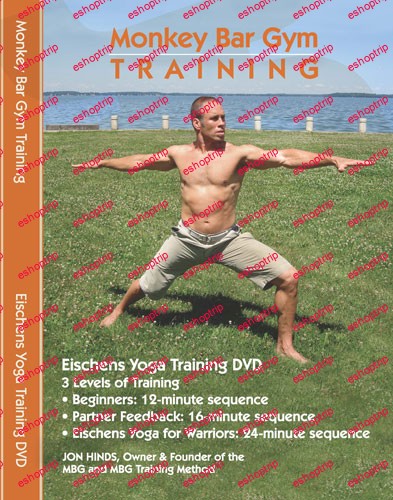
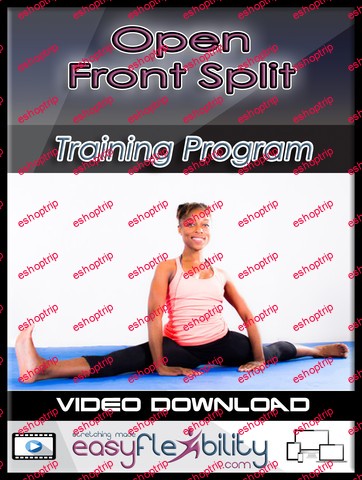
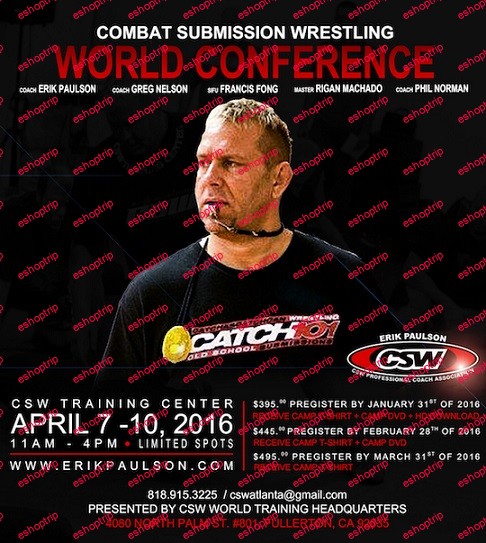
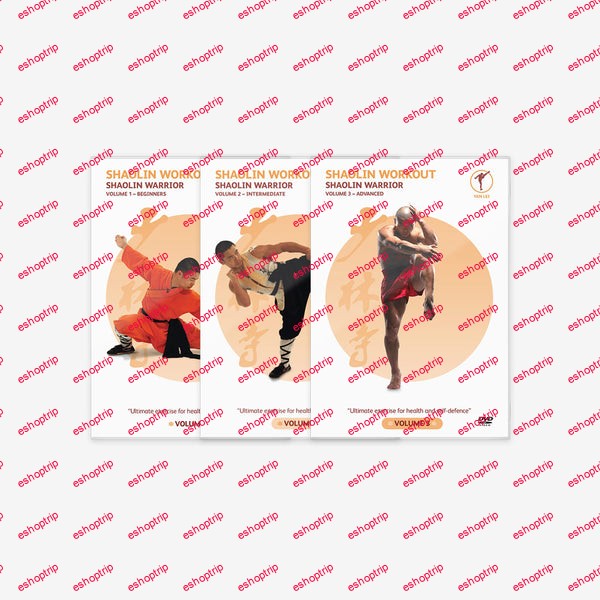
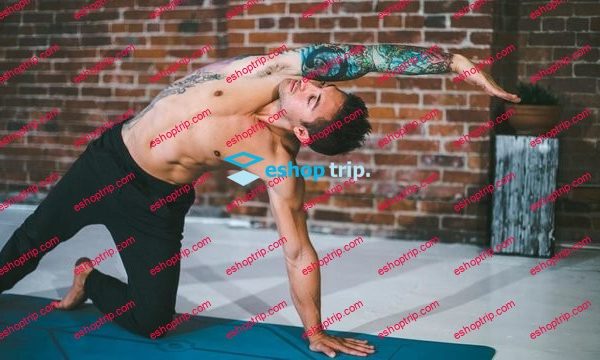



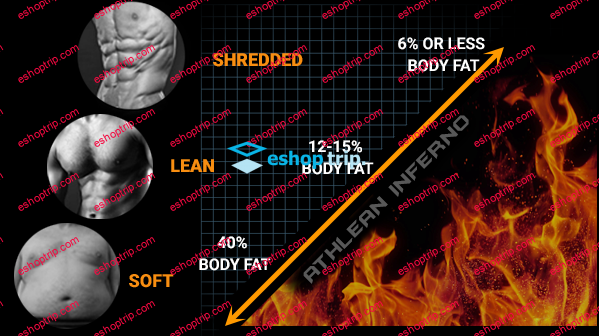

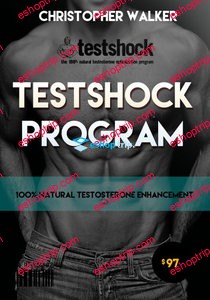
Reviews
There are no reviews yet.